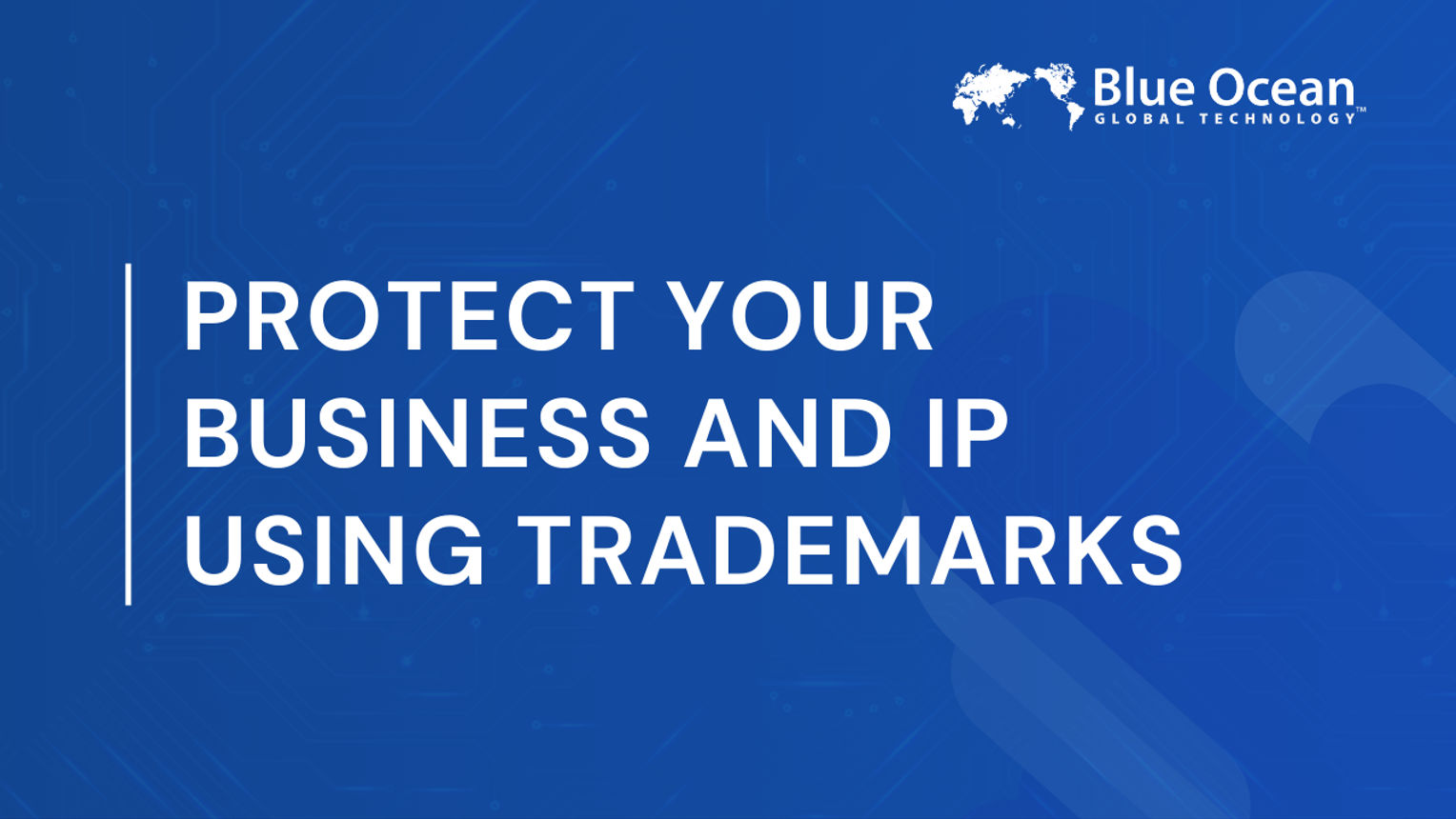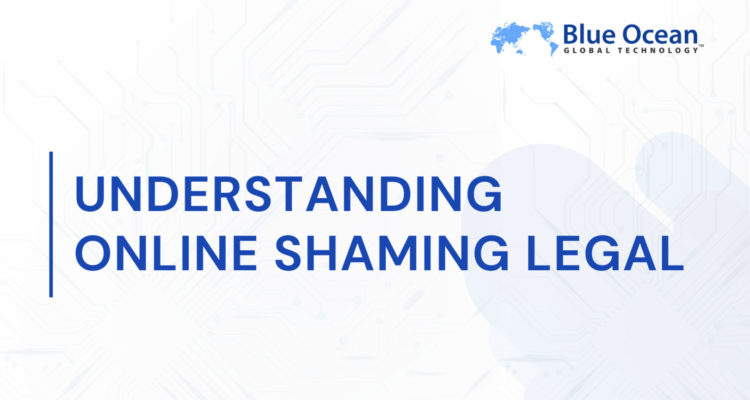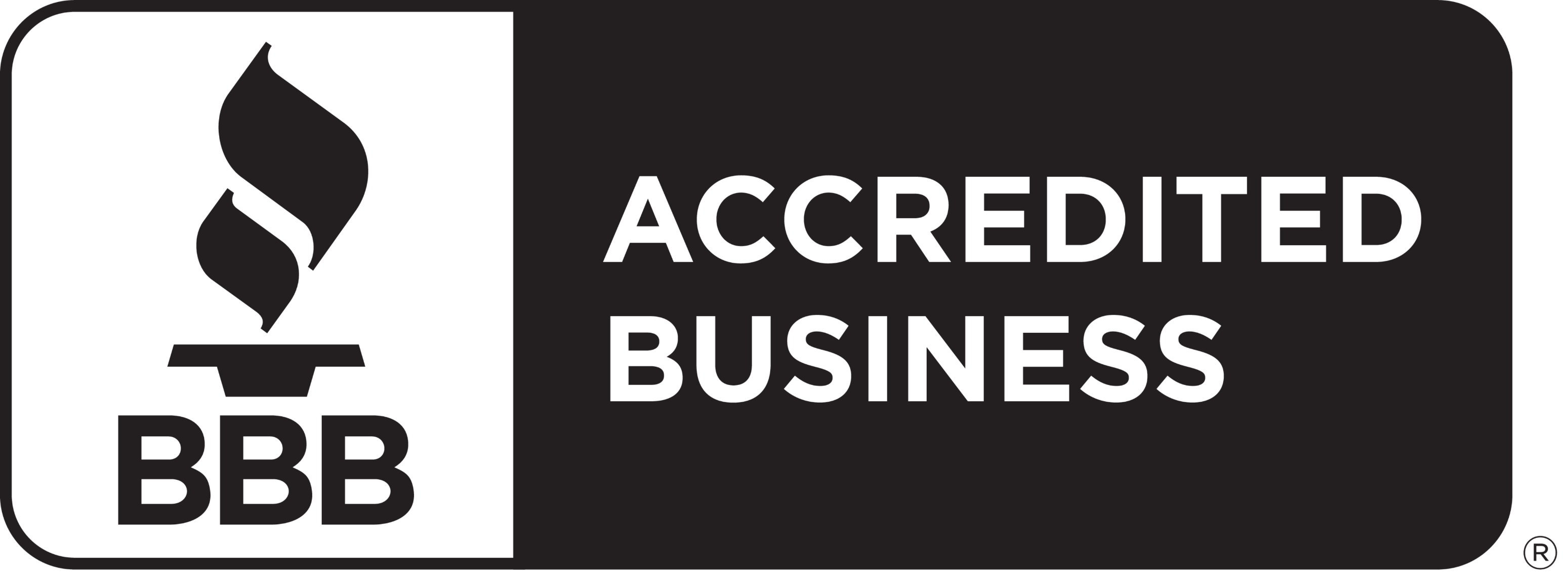Trademarking your goods or services protects you from being sued by others in similar fields. You can only trademark singular goods or services, which helps your way of doing things to be uniquely linked to you. For example: if you trademark your pet-sitting service, and someone else creates a competing company that copycats you. If then try to claim that you copied them, you can use your registered trademark to protect yourself in a court of law.

Trademarks help greatly in establishing your reputation. Customers will think of your brand as a benchmark. For example, we call flying discs “Frisbees.” This is a classic example or when a product has been so successful, it becomes the name for the object itself. Another example is “Jetski.” If you provide exemplary trademarked goods or services, you can capitalize on this investment in unexpected ways. Blue Ocean Global Technology can help you manage your brand.
As a legal entity, Trademarks are useful for paperwork, marketing, contracts, and more. For example: the five interlocking rings of the Olympics are emblazoned everywhere. This kind of widespread use of your trademark will help you greatly in any kind of fight against infringement or copying.
It’s worth mentioning again that unique goods and services can be trademarked. You can search trademark databases to see if a trademark is available or has already been taken.
A Brief Overview of Intellectual Property
Intellectual Property is new: it is an original work that came forth from an individual’s mind. It will be interesting to see what the rise of AI will do here. We’ve already seen some of this with non-fungible tokens (NFTs). Intellectual property can range quite widely and there are 4 broad types :

- Copyrights protect original written or created works, once they are fixed in a tangible form. Think of paintings, song lyrics, books, movies, and software- there is a huge range of what can be copyrighted.
- Patents protect inventions. An invention that is eligible to be patented is a physical creation or a procedure. It must provide the user with a new option or solution that is either sufficiently different from other, previous inventions or surpasses them.
- Trade Secrets stand out for an interesting reason: no government authority registers trade secrets. It entirely depends upon the individuals within a business to keep secret whatever it is that makes them special. (The United States did pass the Defend Trade Secrets Act DTSA in 2016).
Trademarks: From Words to Symbols
What can be a trademark? A trademark “can be any word, phrase, symbol, design, or combination of these things that identifies your goods or services.” It’s what distinguishes your products and services from your competitors, and is a noticeable logo or phrase that customers remember and associate with your business. For example: the golden arches of the giant McDonald’s “M.”
You can own a trademark versus having a registered trademark. If you own a trademark and start using it, there are limited rights that only apply to the physical, geographic area where you are using it. If you register your trademark, you get much wider rights and protections.

A big part of the protection trademarks provides is giving you the sole ownership of a brand name or logo. This cannot be understated, as brand names and logos are how consumers identify the goods and services they want to purchase. For example: if your business is called “Unique” and a new competitor moves in and starts a business called “Uniqu_e,” you could legally prevent them from using a similar trademark.
Depending on where you use or register your trademark, the amount of time it will last varies. You must use your trademark, but in general you have to resubmit or file paperwork in regular year intervals to keep your trademark alive. Your trademark is intertwined with your business reputation: capitalize on both by using smart strategies.
Trademark Your Brand for Long-Term Success.
Protect your business identity—reach out to us today, and our experts will guide you through the trademarking process.
Categories and Types of Trademarks
There are 3-7 recognized major categories of Trademarks in the U.S. and abroad, generally averaging these four: Generic, Descriptive, Suggestive, Arbitrary/Fanciful. Here are some brief examples of each:
- Generic: Raisin Bran. The phrase is trademarked, but it is used in many cereal descriptions.
- Descriptive: Creamy. As in a “creamy” tomato soup.
- Suggestive: Netflix. The name hints at the “internet” and at “flicks” an old term for movies.
- Arbitrary/Fanciful: Amazon. The name for the large online marketplace.
The above is largely general information for those in the U.S. For anyone living or doing business abroad, consult Trademark info in the E.U. There are many types of Trademarks in the U.S. and around the globe. Below are common trademark symbols most people are familiar with:
No matter how you choose to protect your intellectual property, starting with a trademark is a forward-thinking choice that will benefit you and your business in the long term. Blue Ocean Global Technology can help you on your journey of protecting your intellectual property. Schedule a call with us today to learn more about our services!
Frequently Asked Questions
1. What happens if I don’t trademark my logo or business name?
Trademarking your logo , legal protection, market authority, and brand recognition, and simplifies international expansion.
2. My business has offices in the U.S. and abroad. How do we do our trademarks?
There are differences in how you register and upkeep trademarks in the U.S. and abroad- stay informed by checking knowledgeable sources: Trademarks (U.S.) and Trademarks (Abroad)
3. How do I protect my trademark in the global marketplace?
To Protect a Trademark, consider the Madrid System – one application, one set of fees, and protection in up to 131 countries.
Elevate Your Brand with Effective Trademarking.
Take the first step towards protecting your business—schedule a consultation with our team today and unlock your brand's full potential.













